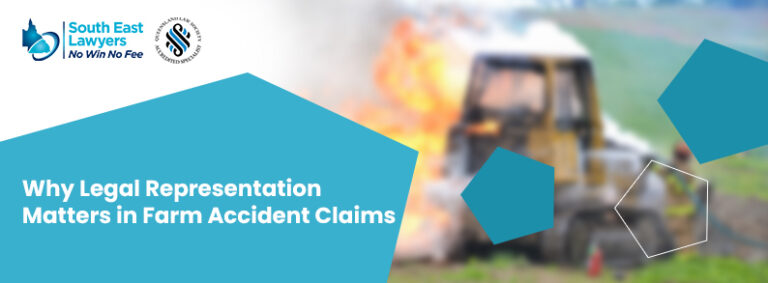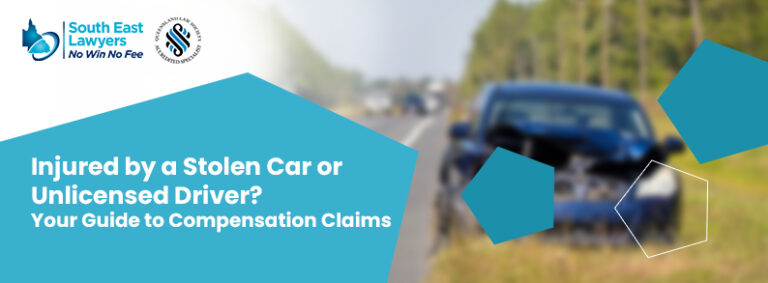Accidents can happen anywhere and at any time, leaving you with unexpected injuries and mounting expenses.
Whether you’ve slipped in a supermarket, encountered a hazard in a public park, or faced an unfortunate incident in a private residence, understanding your rights and options for compensation is essential.
If you find yourself in such a situation in Queensland, you may be wondering about public liability claims and how they work. To help, we’ve put together some answers to the most common questions surrounding public liability compensation in Queensland.
What is public liability and how does it relate to personal injury claims?
Public liability refers to the legal responsibility that an individual, organisation, or entity has for injuries or damages suffered by another person in a public or privately-owned place that is accessible to the public.
In the context of personal injury claims, public liability involves seeking compensation for injuries sustained due to the negligence of a responsible party.
This means that if you’ve been injured on someone else’s property or premises and can demonstrate that your injury resulted from the property owner’s failure to meet their duty of care, you may have a valid public liability claim.
Who can be held responsible for injuries that occur in a public place?
Various parties can potentially be held responsible (liable) for injuries occurring in a public place, including property owners, occupiers, business operators, government authorities, and individuals responsible for maintaining the premises.
The determination of liability is based on whether the responsible party owed a duty of care to the injured person and whether they breached that duty, resulting in the injury.
What are some examples of common public liability incidents that could result in a claim?
Examples of incidents that may lead to public liability claims include:
- slips and falls in supermarkets;
- accidents in public parks;
- injuries caused by defective equipment or structures in public areas;
- dog attacks;
- accidents on public transportation;
- injuries sustained during sporting events or recreational activities.
Please keep in mind that this is only a list of examples and various other incidents could amount to a public liability claims. If you think you’ve been involved in an incident that could be eligible for public liability compensation, we recommend getting in touch with a personal injury lawyer.
How do I know if I have a valid public liability claim for my injury?
To establish the validity of a public liability claim, you need to demonstrate that your injury resulted from the negligence of another party. This involves proving that the responsible party had a duty of care toward you, breached that duty through negligence, and that the breach directly caused your injury.
As we mentioned above, if you think you’ve been involved in an incident that could be eligible for compensation, talking to a personal injury lawyer to see your options as public liability cases can be complicated.
What steps should be taken if you’re injured in a public place?
If you’ve had an accident in a public place, you should take the following steps:
Prioritise your wellbeing
The first and foremost concern should be your health and safety. Ensure you receive appropriate medical attention for your injuries. Even seemingly minor injuries should be evaluated by a healthcare professional as some injuries may not show immediate symptoms.
Report the incident
If possible, report the incident to someone in authority at the site where you fell/tripped/slipped. This could be a manager, security personnel, or property owner. Prompt reporting helps ensure that the hazard causing your fall is documented and not removed before proper documentation takes place. Request a copy of the incident report for your records.
Gather information
Collect as much information as possible about the incident. Note the date, time, and specific location of the accident. Take note of the cause of the accident, such as a wet floor or uneven surface. Identify the owner, business, or local council responsible for the space where the injury occurred. If possible, obtain their insurance details. We understand that this may be difficult to do if you’ve been significantly injured, however, having as much information as possible is important.
Document the scene
If you or someone with you is able to, take photographs of the accident scene, including the hazard that caused your fall. Photographs serve as valuable evidence to support your claim. They can help establish the conditions at the time of the incident.
Seek medical attention
Even if your injuries appear minor, seek prompt medical attention. Medical reports and records will serve as crucial documentation for your case. They provide evidence of the extent of your injuries, prognosis, and recovery process. Request medical reports, scans, x-ray results, and any other relevant medical documentation.
Collect witness information
If there were witnesses present at the time of the incident, gather their names and contact details. Witnesses may be important for providing additional accounts of what happened and can support your claim.
Discuss with compensation lawyers
If you believe that your injury resulted from the negligence of the property owner or business, consider consulting with experienced compensation lawyers. They can guide you through the legal process, assess the viability of your claim, and help you gather necessary evidence.
Act promptly
Time is of the essence in filing a compensation claim. Consultation with legal experts, gathering evidence, and initiating your claim should be done as soon as possible to ensure the preservation of evidence and adherence to any statutory time limits.
How long do I have to file a public liability claim?
The time limits involved in public liability claims may vary depending on the type of injuries sustained and various other details. To ensure you know the right time limits associated with your claim type, we recommend seeking legal advice so you can avoid missing any crucial deadlines.
What types of compensation can I claim in a public liability case?
Compensation for public liability cases can vary depending on the factors of the case, however, some types of compensation you may be eligible for include:
- General damages for pain and suffering.
- Past and future loss of earnings.
- Past and future medical expenses.
- Past and future care costs.
- Other out-of-pocket expenses related to your injury.
How much compensation will I get for a public liability compensation claim?
Determining the exact compensation amount for a public liability claim can be complex and depends on various factors specific to your case, such as:
- Nature and Severity of Injuries: More serious injuries, such as permanent impairments or significant pain and suffering, may result in higher compensation payouts.
- Lost Wages and Medical Expenses: Compensation could include reimbursement for lost wages if you had to take time off work due to the injury. Additionally, medical and care expenses incurred as a result of the injury can be compensated.
- Permanent Impairment: If your injury results in a permanent impairment, you may be entitled to a lump sum payment. The extent of the impairment and its impact on your life will play a role in determining the amount.
- Negligence and Liability: The circumstances surrounding the accident and the degree of negligence on the part of the responsible party can impact the compensation amount. If the negligence is clear and contributed significantly to the injury, it may affect the final payout.
- Age and Future Impact: Your age and the potential long-term impact of the injury on your ability to work, engage in daily activities, and overall quality of life are considered when determining compensation amounts.
- Legal Assistance: Working with experienced compensation lawyers can help you navigate the legal process, negotiate with insurers, and ensure you receive the maximum amount you’re entitled to.
While average compensation amounts can vary based on the type of claim, severity of injuries, and other factors, it’s important to note that every case is unique. If you believe you have a potential compensation claim, we highly recommend seeking legal advice as they can provide you with personalised advice and guidance.
What if the property owner denies liability for my injury?
If liability is disputed, you may need to gather compelling evidence to support your claim. This is where consulting with a lawyer to assess the strength of your case and explore legal options is extremely valuable.
Will I have to go to court for a public liability claim?
Not necessarily, many public liability claims are resolved through negotiation or mediation without the need for court proceedings. Working with a compensation lawyer experienced in public liability matters is one of the ways that you’ll be more likely to be able avoid court proceedings for your claim.
What should I do if the insurance company offers me a low settlement?
If you receive a low settlement offer, it’s advisable to seek legal advice before accepting or rejecting it. A compensation lawyer can help you assess the offer’s fairness and guide your next steps. We understand that being involved in these matters, particularly if you’re recovering from an injury can make you want to settle as soon as possible, however, working with a lawyer who is experienced in personal injury and compensation law can often make the process a lot more efficient.
What if I was partially at fault for my injury, can I still make a public liability claim?
Yes, you may still pursue a claim even if you share some degree of fault for the injury. However, the compensation amount could be reduced based on your level of contributory negligence.
What if the property owner or their insurer disputes my claim?
In case of a dispute of your claim, legal proceedings may become necessary. We recommend consulting with a lawyer to evaluate your options and potential outcomes. You can work with a lawyer from any point of your compensation claim process.
Do I need to prove negligence to win a public liability claim?
Yes, proving negligence on the part of the responsible party is a key element in winning a public liability claim.
Can I appeal a decision or settlement related to my public liability claim?
Yes, you may have the right to appeal a decision if you believe it’s unjust or incorrect. If you wish to appeal a decision and you haven’t worked with a lawyer yet, we recommend engaging one at this point so that you can understand your options, including the likelihood of your appeal being successful.
When do I need to seek legal advice from a personal injury lawyer for my public liability claim?
It’s advisable to seek legal advice as soon as you possibly can after you sustain your injury.
A lawyer can evaluate your case’s merits, guide you through the process, and advocate for your rights to fair compensation. However, if you don’t seek advice early on, it’s still possible to seek their advice at any point of the public liability claim process.
Do you need help with a public liability claim?
If you’ve had an accident in a public place and you’re considering making a claim for compensation or you’re already involved in a compensation claim in Queensland, you can get in touch with our compensation legal team at South East Lawyers. We can offer advice, guidance and representation in your matter. Call us on 07 5241 7994 or book online here.






